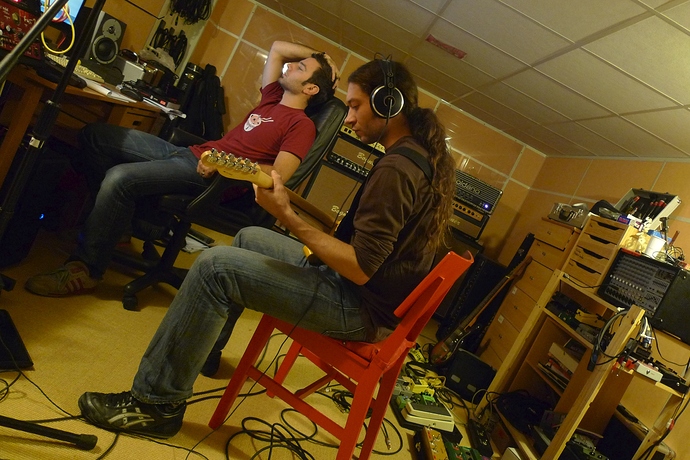The band I am in got granted two days of studio time to record some of our songs - woohoo!!!
Now, I am trying to tap into the collected wisdom of this great forum to get pointers for a) gear, and b) how to prep. I am trying to soak it all up, so please send me your best advice!
But, in particular, I have this recurring problem of finding and defining my “sound”. I find myself constantly liking a particular setting/patch on my Studio 40 and then not liking it anymore and going for something else, before eventually returning to it anyway (and perhaps tweaking it). Also, after having played with the GT-1B (multi-effects board), I thought I had something I liked and that sounded good at home through a neutral setting on the Studio 40, but when I used it in the rehearsal room through the SVT, I thought it was lacking… (OK, different amp, different room, other sounds clashing with it…). So, what is the approach I should be focusing on for the studio:
- just bring my bass(es) and rely on the effects there and the sound engineer to get me a decent sound?
- bring my Studio 40, make up my mind about the settings there, and use the XLR out there to connect to the mixer? Or have it mic’ed up??
- bring the GT-1B, make up my mind about the settings there, and have that connected to some of the amps they have in the studio? Or, again, directly to the mixer?
- or, maybe, I shouldn’t worry so much about this at all, since - given that we only have two days - we should focus on getting the drums and the singer recorded, and then guitar and bass can be done later (perhaps via GarageBand etc)?? We might have to do something like this anyway, since we probably prefer to record “live” and without a click.
Other questions:
- how many songs is realistic to record in two days?
- what are the most important things to prepare BEFORE going into the studio (other than knowing the material, obviously)?
- how best to deal with small mistakes during recording? Abort immediately and start over? Keep going and see whether it can be “fixed” later??
- in this context, when recording “live”, is it easier to redo the entire track with all instruments, or just re-record individual instruments/passages?
I probably have more questions, but I’ll stop for now  Thanks!
Thanks!


 ) - tonight, I have to do some Saturday evening social stuff
) - tonight, I have to do some Saturday evening social stuff 
